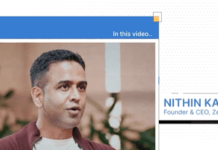
Introduction
SEBI, the Securities and Exchange Board of India, has constituted 16 Working Groups to recommend on simplification of various SEBI Regulations. These Working Groups will also look into the compliance requirements to enhance the ease and reduce the cost of compliance. This move follows an announcement made in the Union Budget for FY 2023-24.

SEBI has invited suggestions from the public and regulated entities till November 6, 2023, towards simplifying the rules.
This is a welcome step by SEBI, as it will help to reduce the burden on regulated entities and make the Indian securities market more attractive to investors.
Areas of Focus
The Working Groups will be looking at a wide range of areas, including:
- Simplification of the disclosure requirements for listed companies
- Rationalization of the listing process
- Streamlining of the approval process for new products and services
- Reduction of the reporting burden on regulated entities
- Making the regulatory framework more technology-friendly
Potential Benefits

The simplification of SEBI regulations has the potential to offer a number of benefits to both regulated entities and investors.

For regulated entities, reduced compliance costs and a more streamlined regulatory environment will allow them to focus on their core business activities. This will lead to improved efficiency and profitability.
For investors, a more transparent and efficient securities market will make it easier to make informed investment decisions. This will lead to increased participation in the market and deeper liquidity.
Challenges
While the simplification of SEBI regulations is a desirable goal, there are a number of challenges that will need to be addressed.
One challenge is to ensure that the simplification process does not compromise the effectiveness of the regulatory framework. It is important to strike a balance between reducing compliance costs and protecting investor interests.
Another challenge is to coordinate the simplification process with other relevant stakeholders, such as the government and other regulators. It is important to ensure that the new regulations are consistent with other policies and regulations.
Conclusion
The simplification of SEBI regulations is a complex and challenging task. However, it is an important step that needs to be taken to make the Indian securities market more competitive and attractive to investors.
The Working Groups that have been constituted by SEBI are well-positioned to recommend the necessary changes to the regulatory framework. They have a deep understanding of the securities market and the challenges faced by regulated entities.
It is important for all stakeholders to participate in the consultation process and submit their suggestions. This will help to ensure that the Working Groups are able to formulate recommendations that are in the best interests of the Indian securities market.
Additional Considerations
In addition to the areas of focus and potential benefits listed above, there are a number of other considerations that the Working Groups may need to take into account.
One consideration is the impact of simplification on different categories of regulated entities. For example, small and medium-sized enterprises (SMEs) may have different needs and challenges than large corporations.
Another consideration is the impact of simplification on the development of new products and services. It is important to ensure that the regulatory framework is conducive to innovation.

Finally, the Working Groups will need to consider the international implications of simplification. It is important to ensure that the Indian regulatory framework is aligned with international best practices.
Recommendations
The following are some specific recommendations for the Working Groups:
- Involve all stakeholders: The Working Groups should involve all stakeholders, including regulated entities, investors, and industry experts, in the consultation process. This will help to ensure that the new regulations are comprehensive and well-balanced.
- Consider the needs of different categories of regulated entities: The Working Groups should consider the different needs and challenges of different categories of regulated entities, such as SMEs and large corporations.
- Promote innovation: The Working Groups should ensure that the regulatory framework is conducive to innovation.
- Align with international best practices: The Working Groups should align the Indian regulatory framework with international best practices.
The simplification of SEBI regulations is a complex and challenging task. However, it is an important step that needs to be taken to make the Indian securities market more competitive and attractive to investors.
The Working Groups that have been constituted by SEBI are well-positioned to recommend the necessary changes to the regulatory framework. They have a deep understanding of the securities market and the challenges faced by regulated entities.

It is important for all stakeholders to participate in the consultation process and submit their suggestions. This will help to ensure that the Working Groups are able to formulate recommendations that are in the best interests of the Indian securities market.
[dflip id=”299372″][/dflip]







